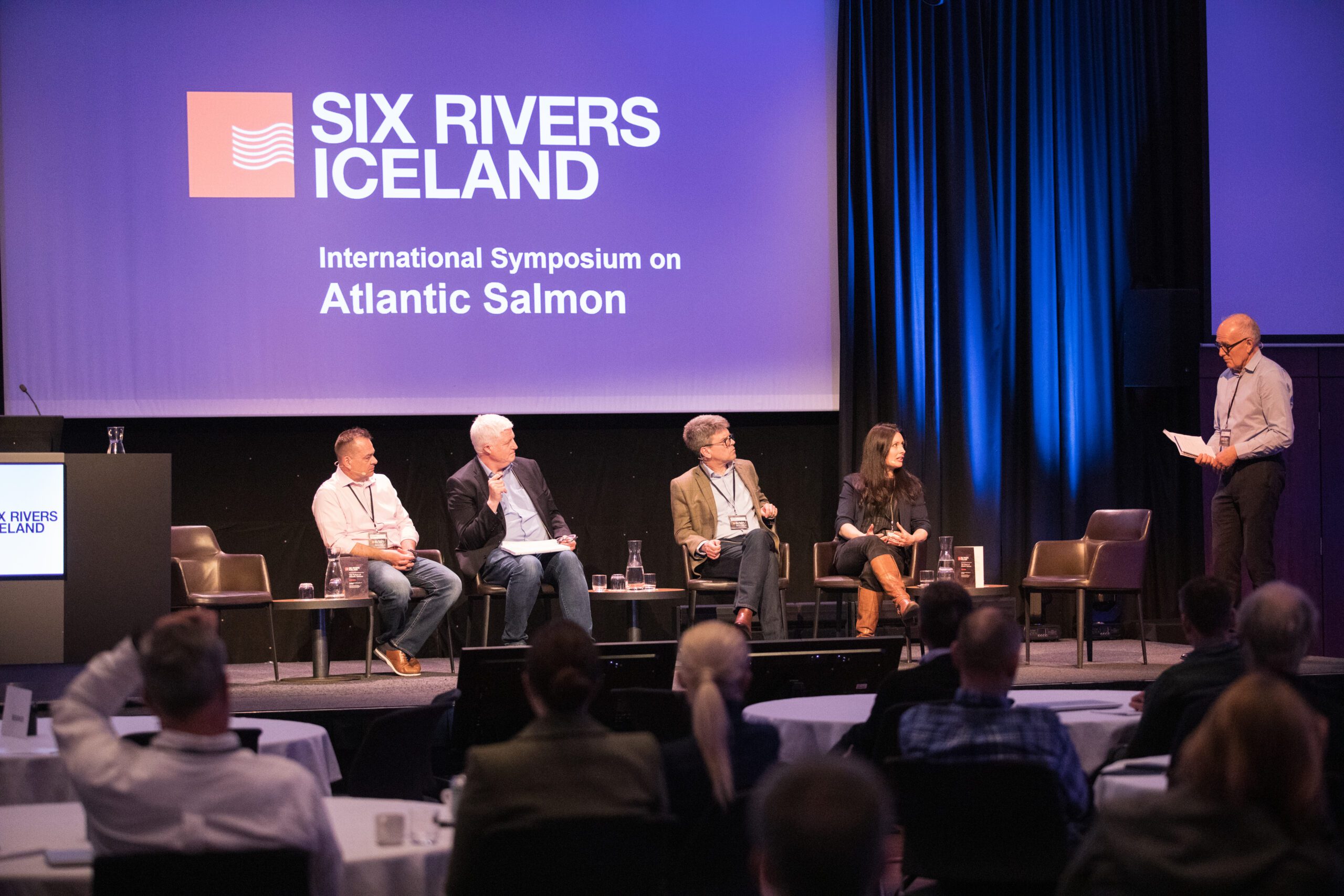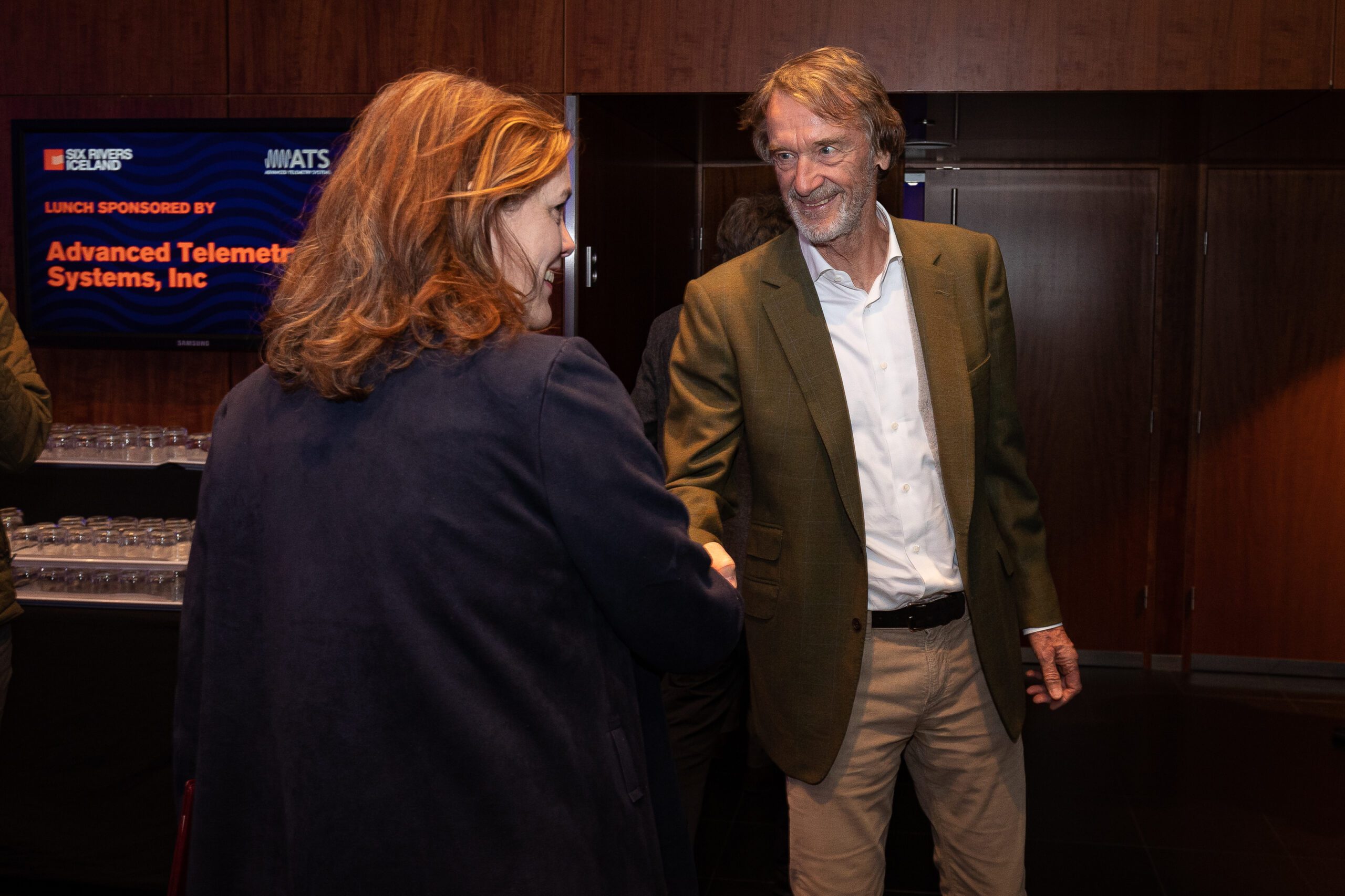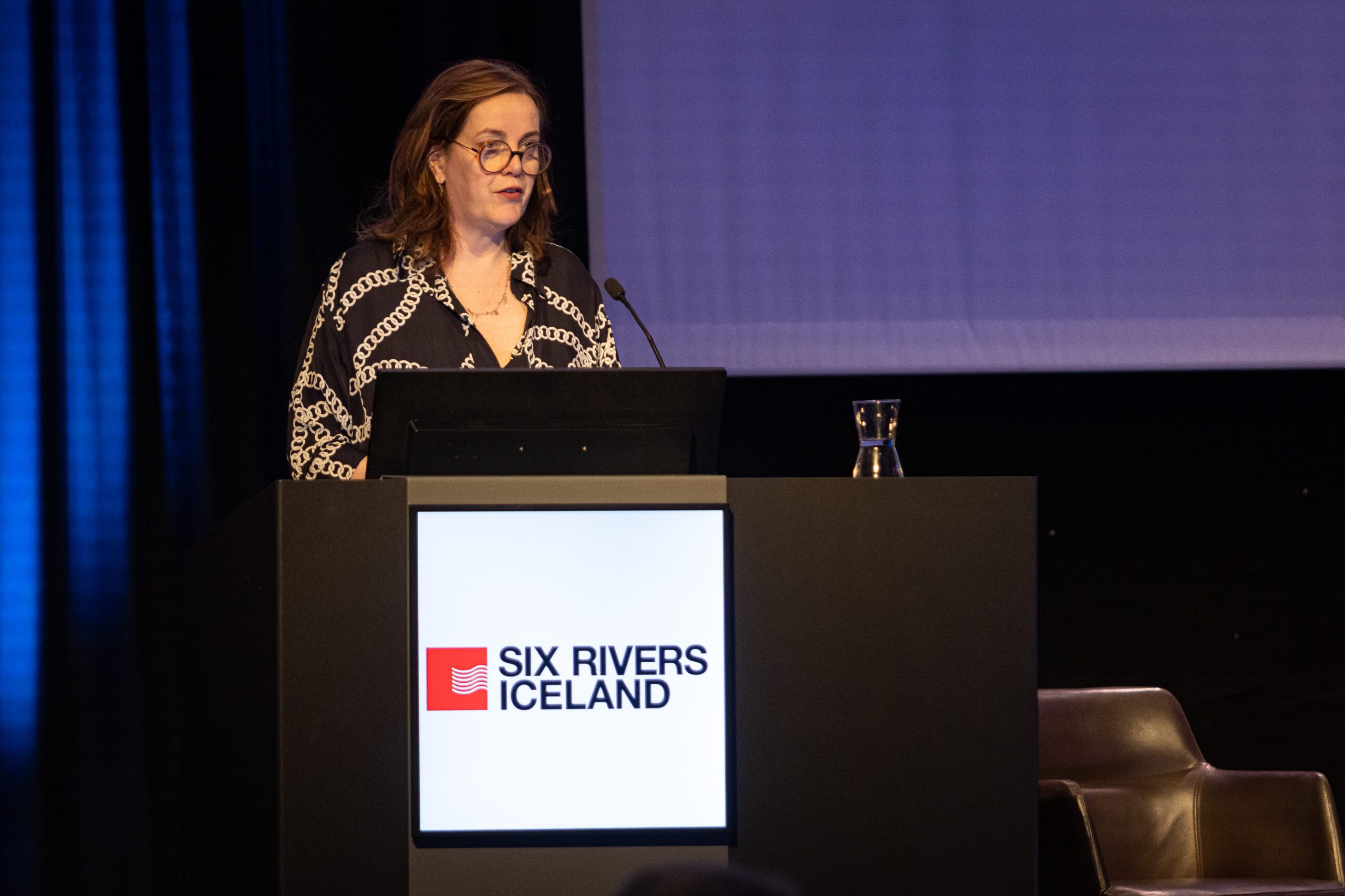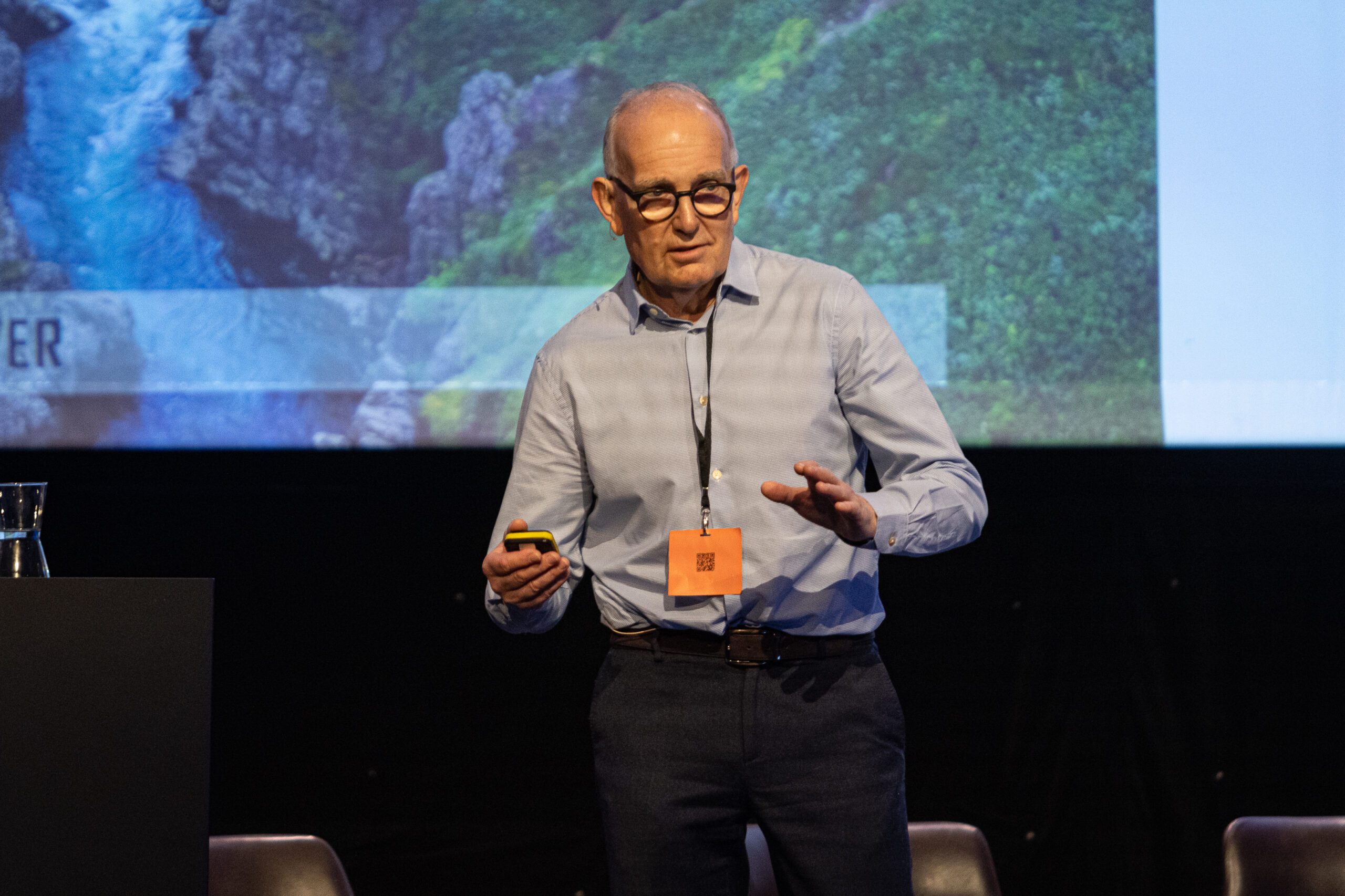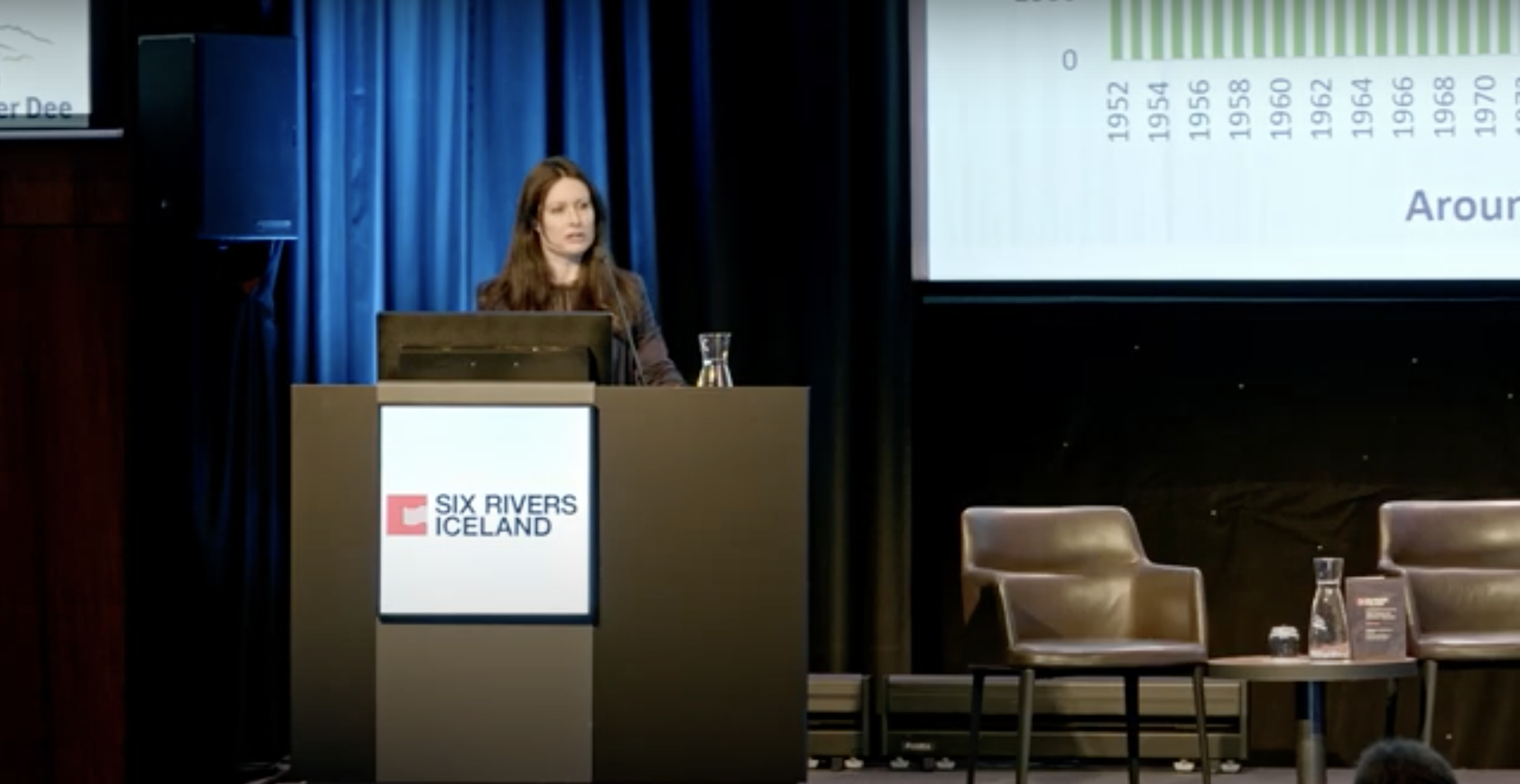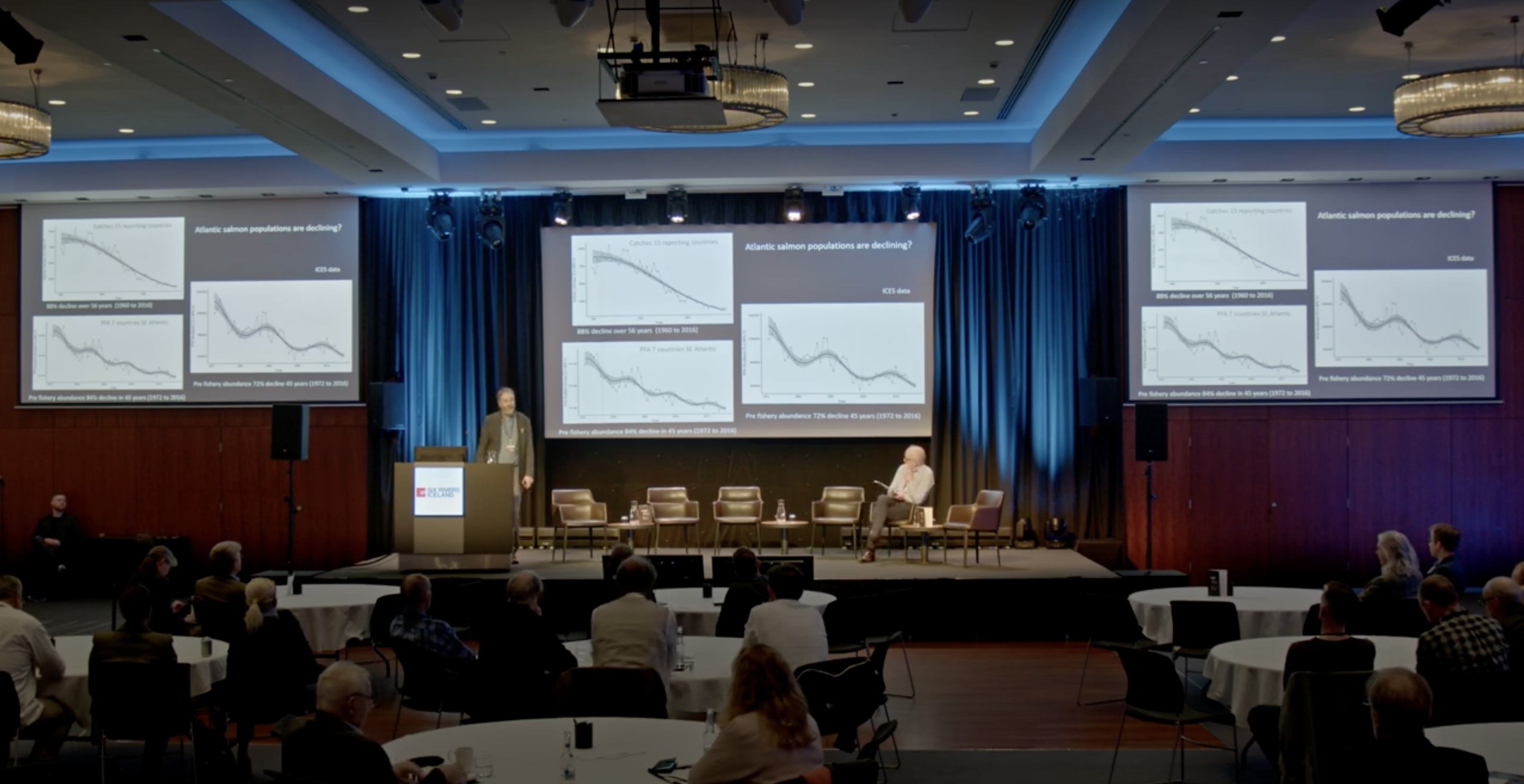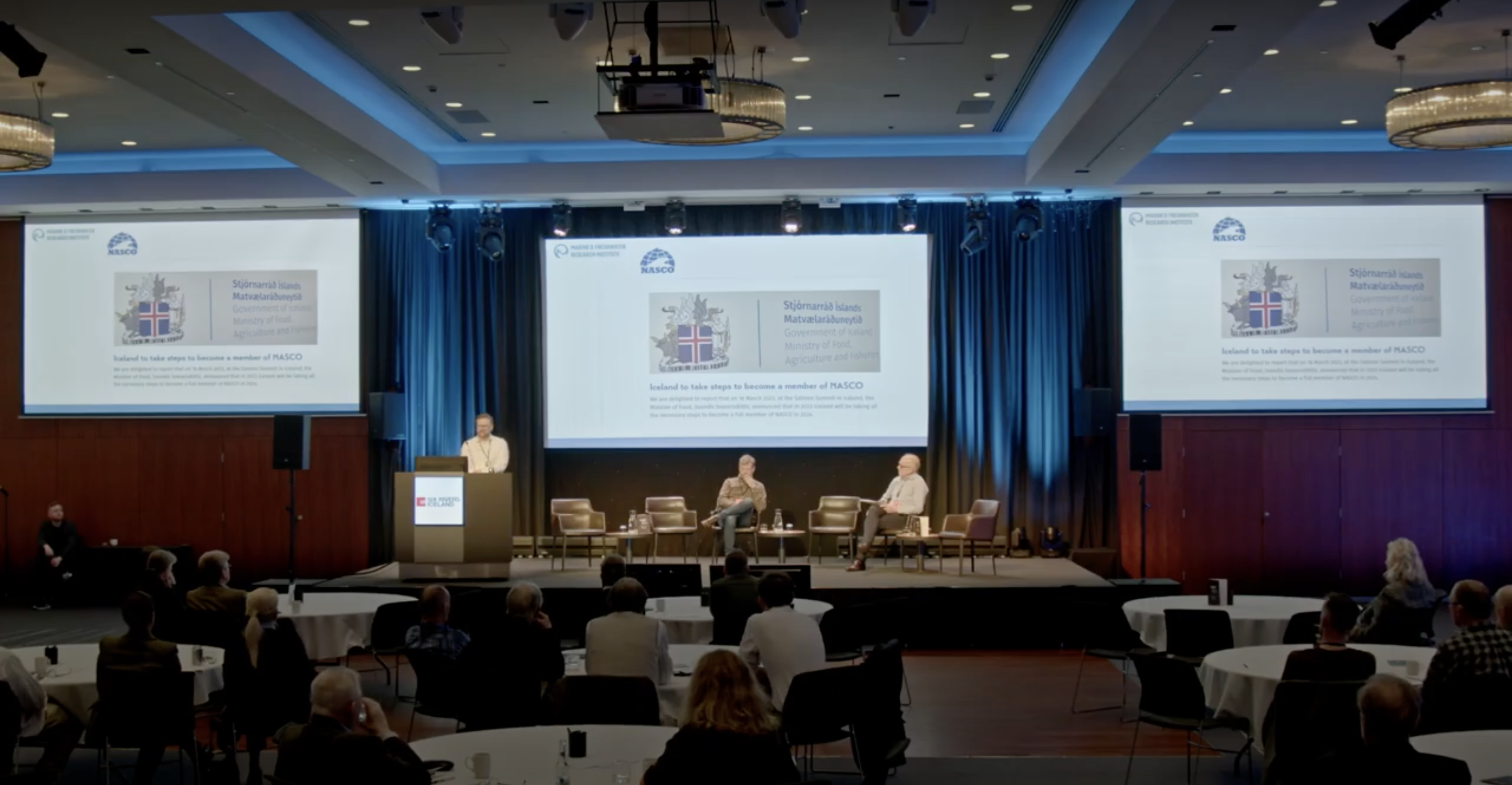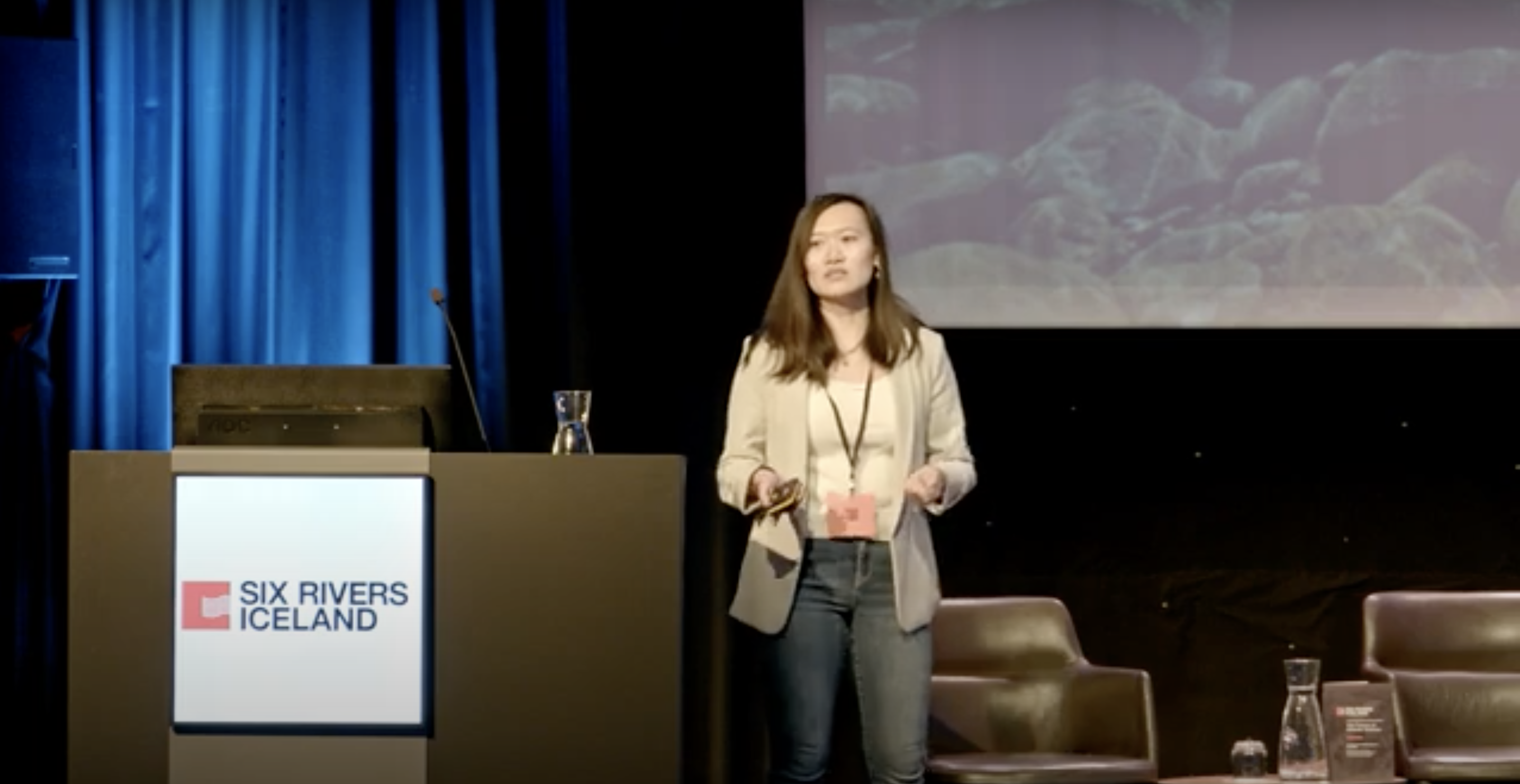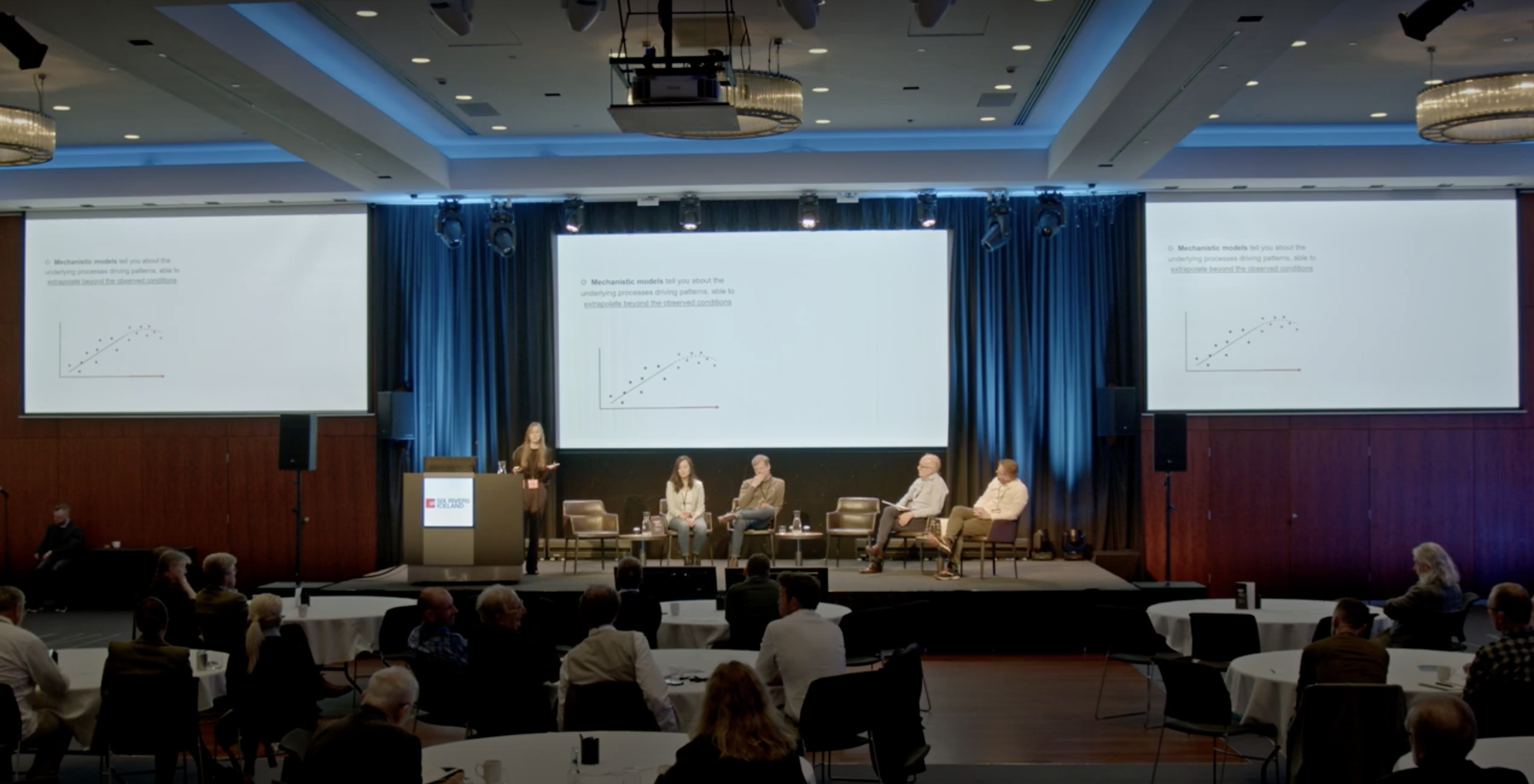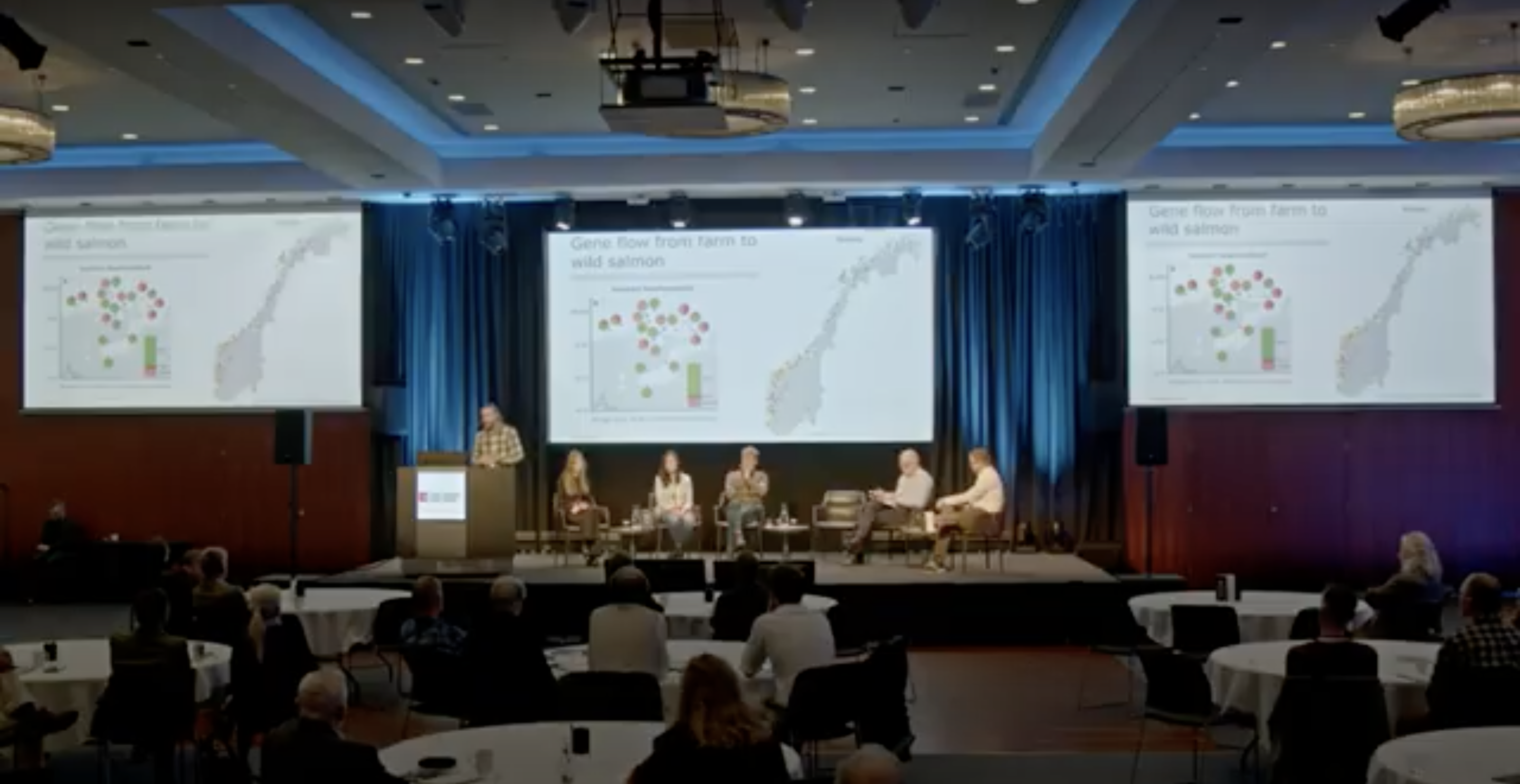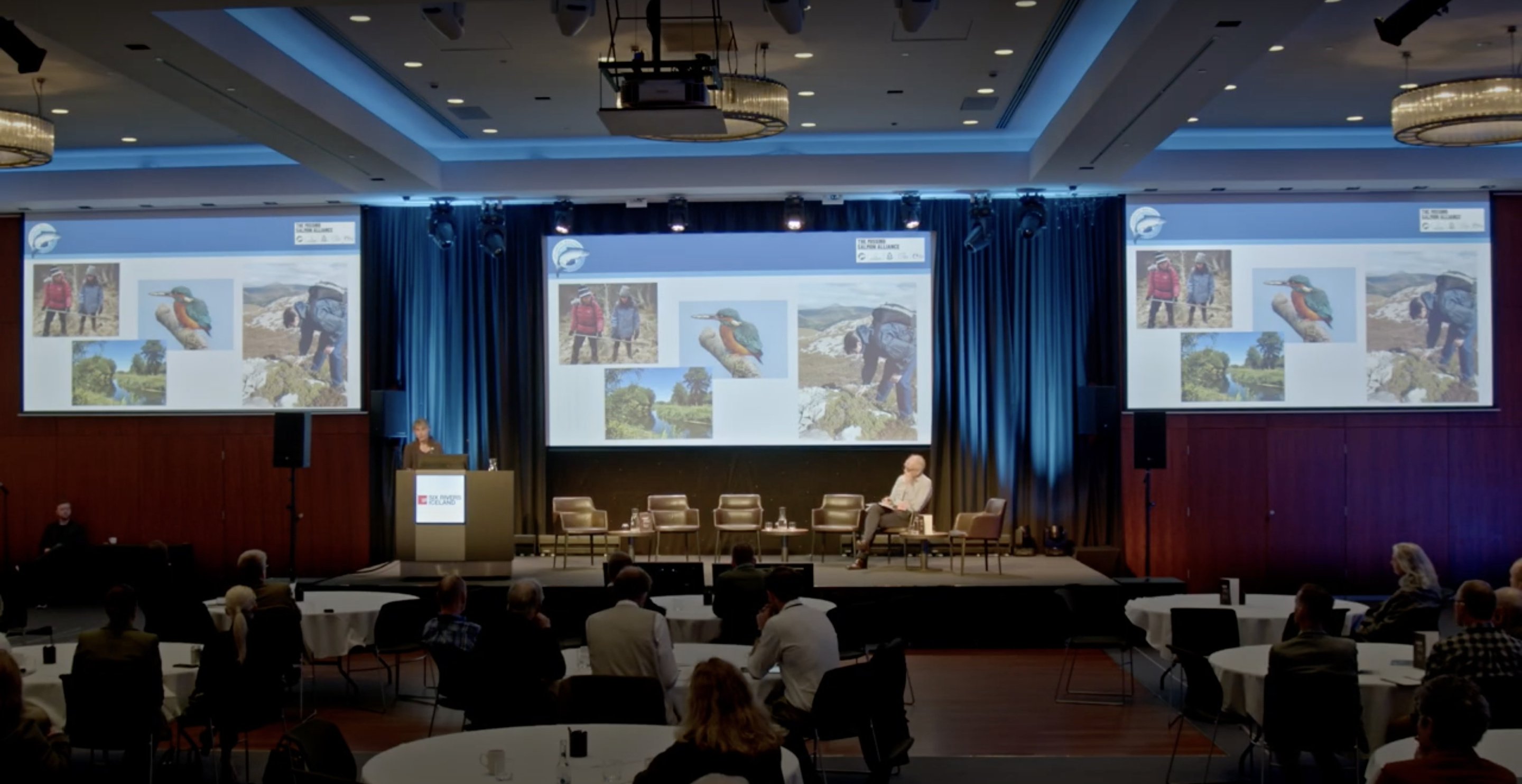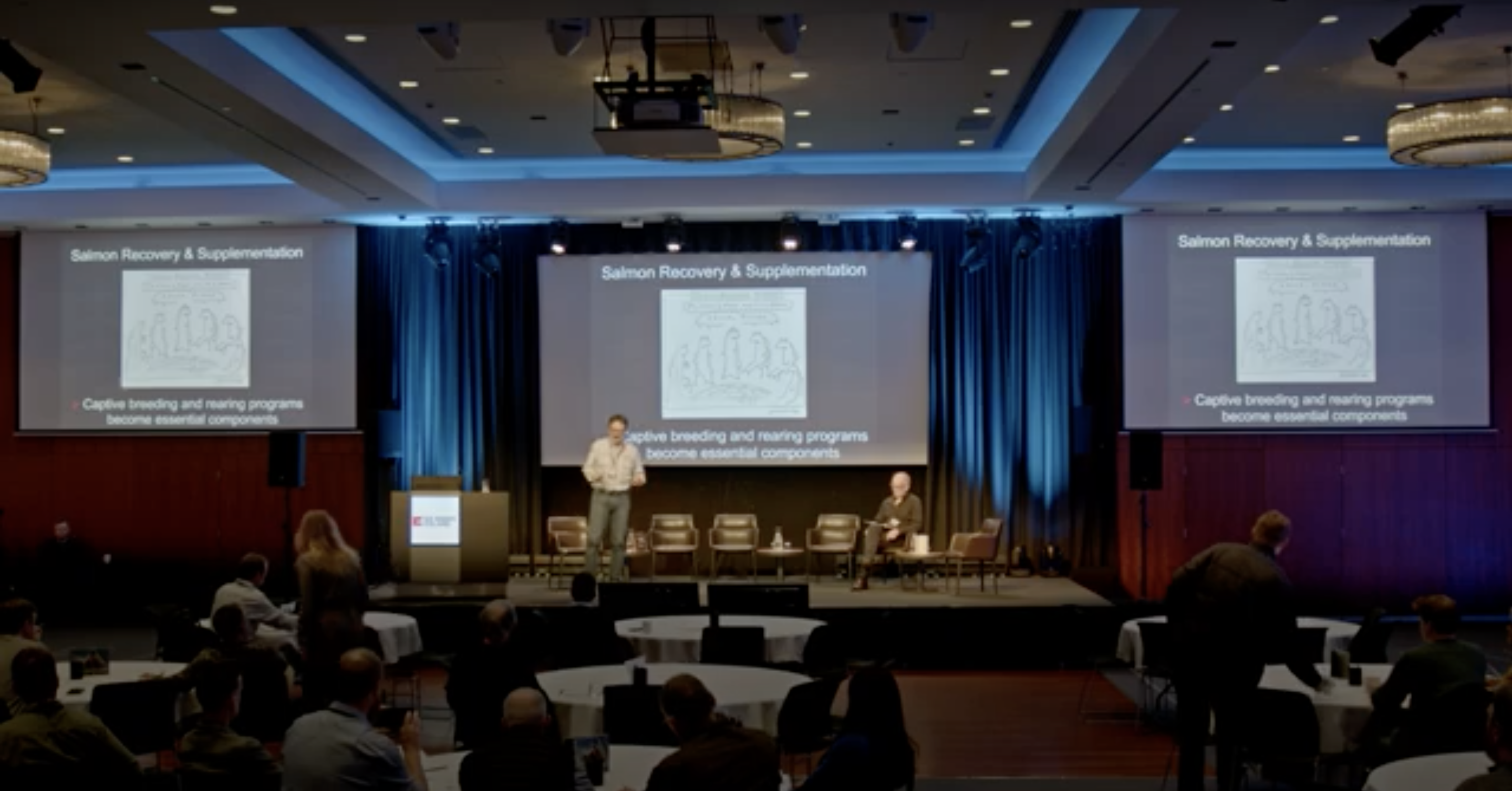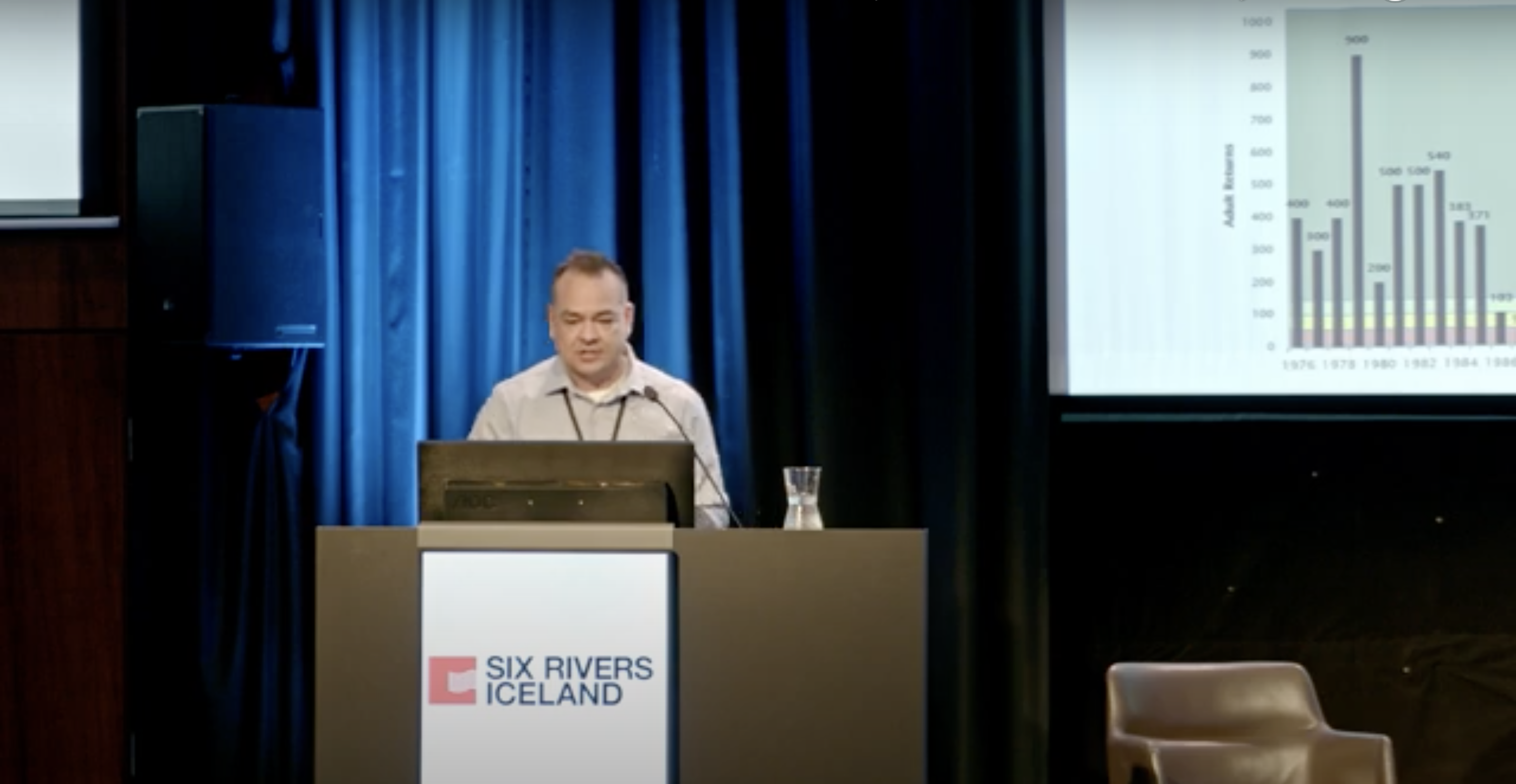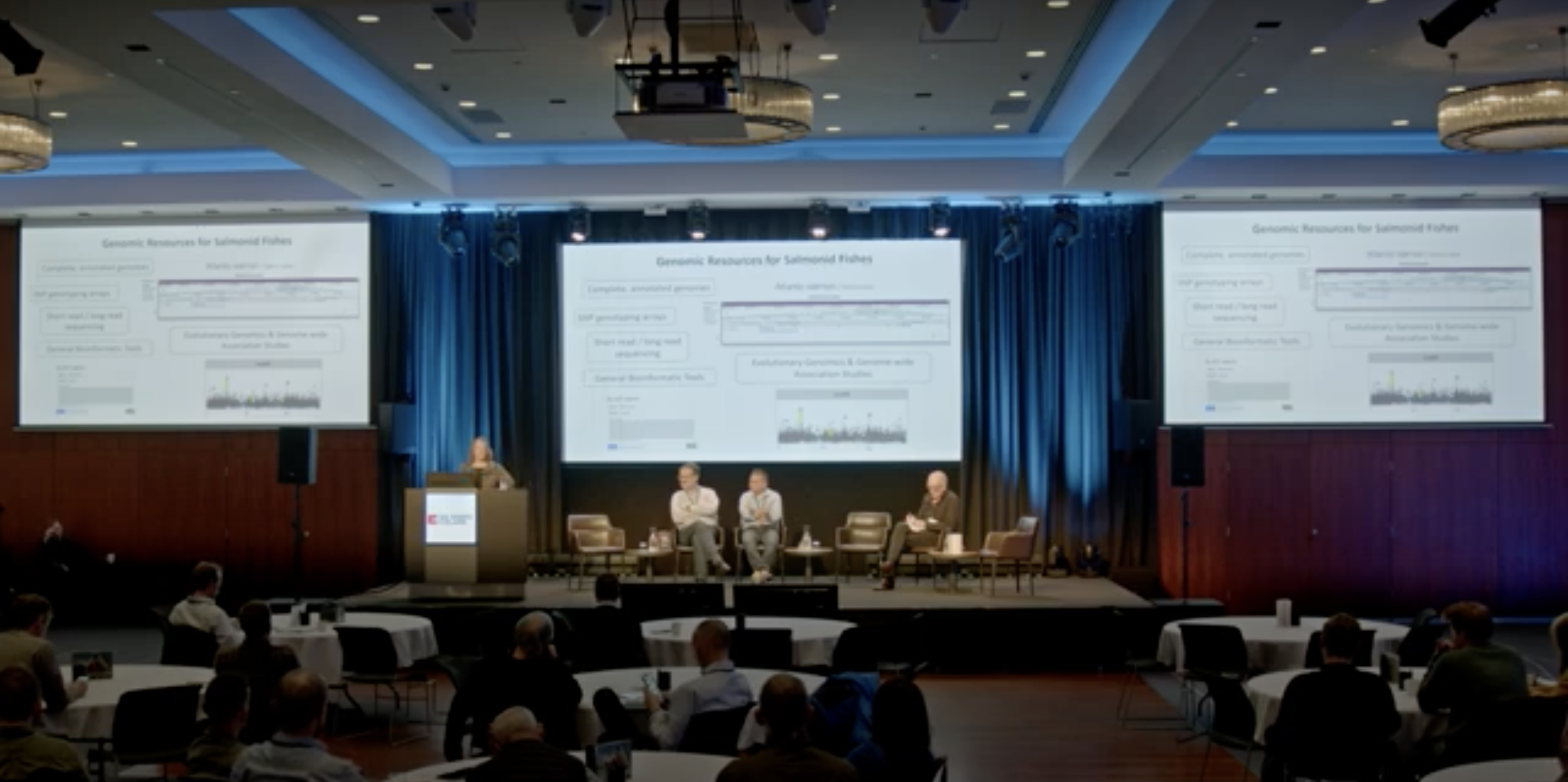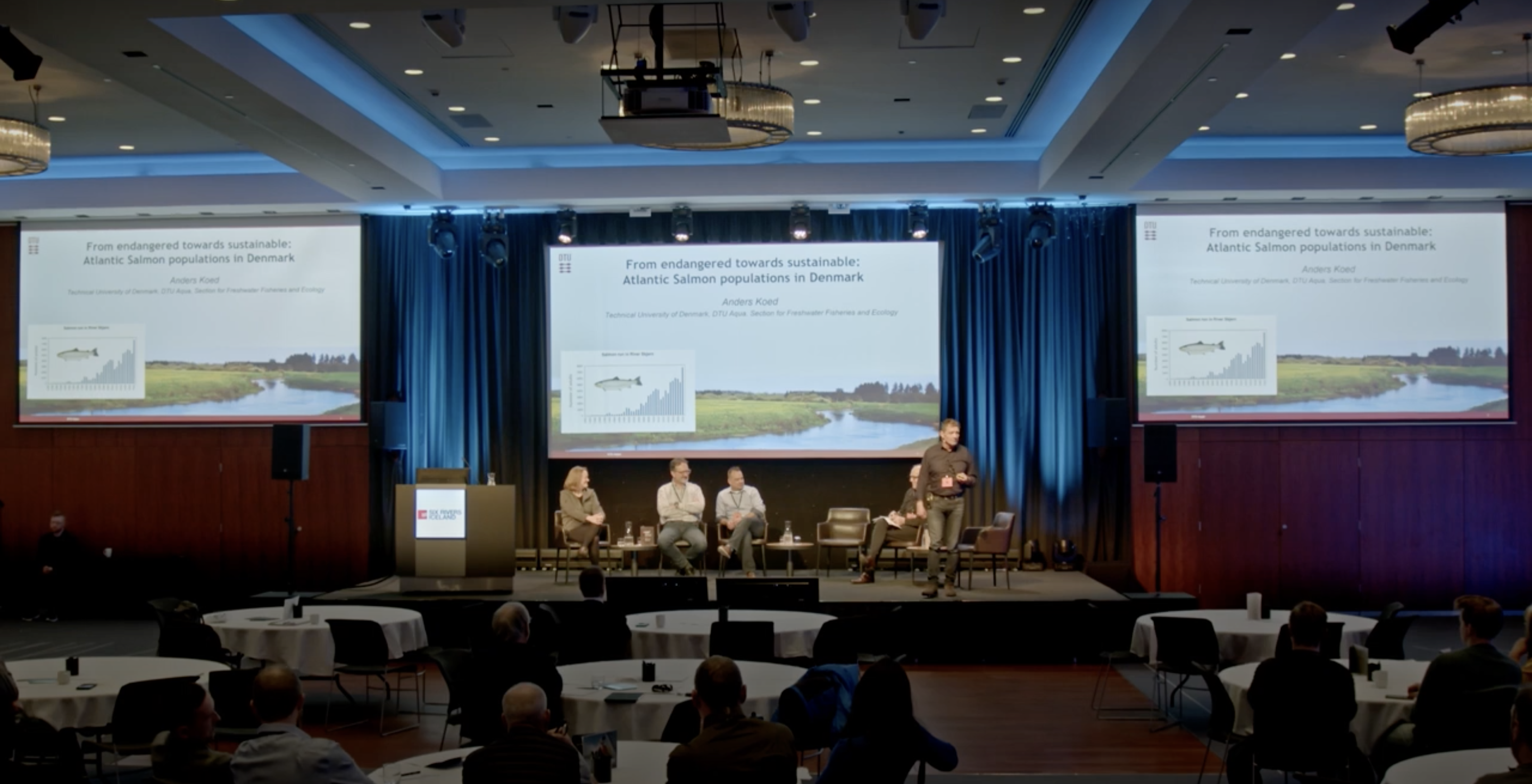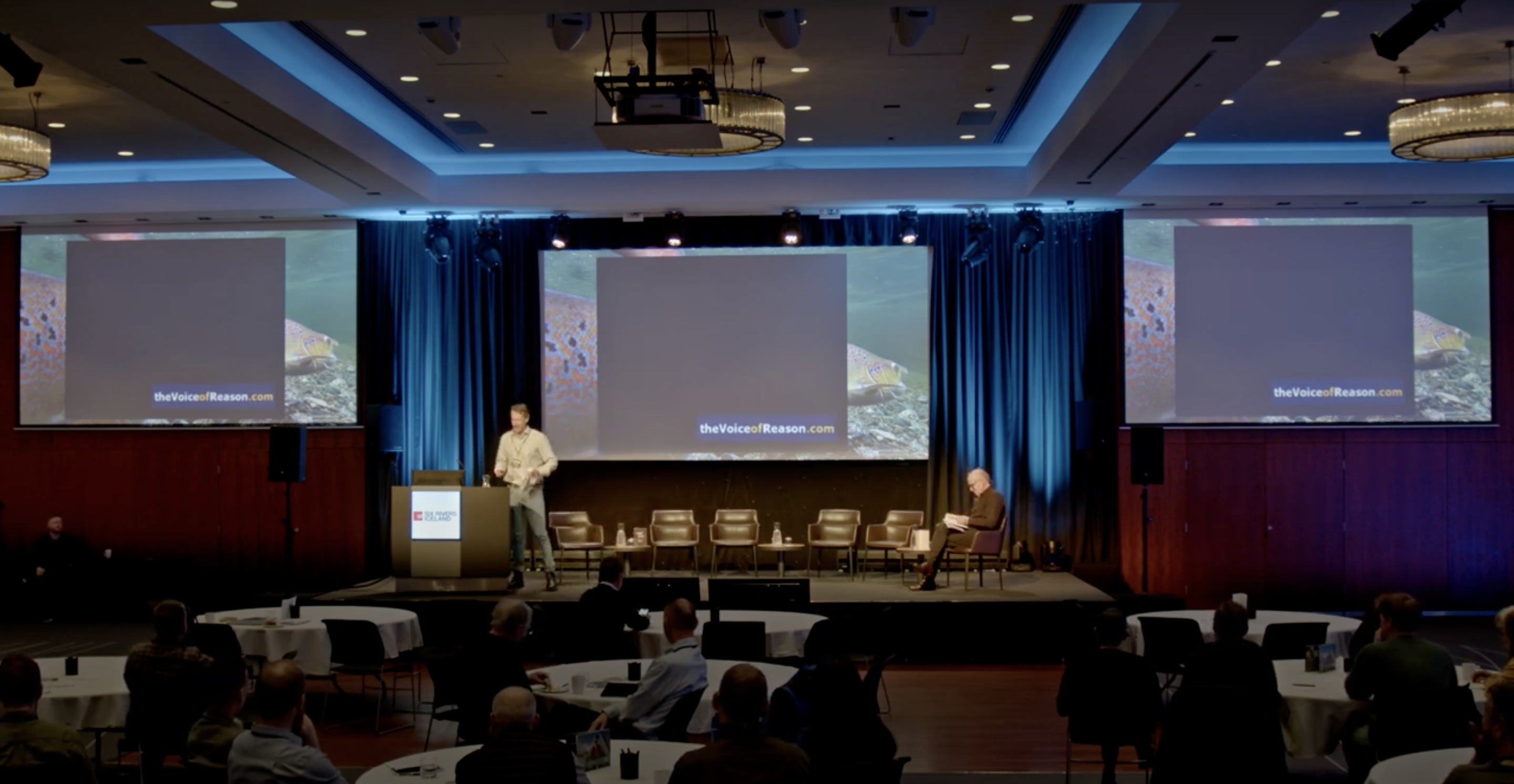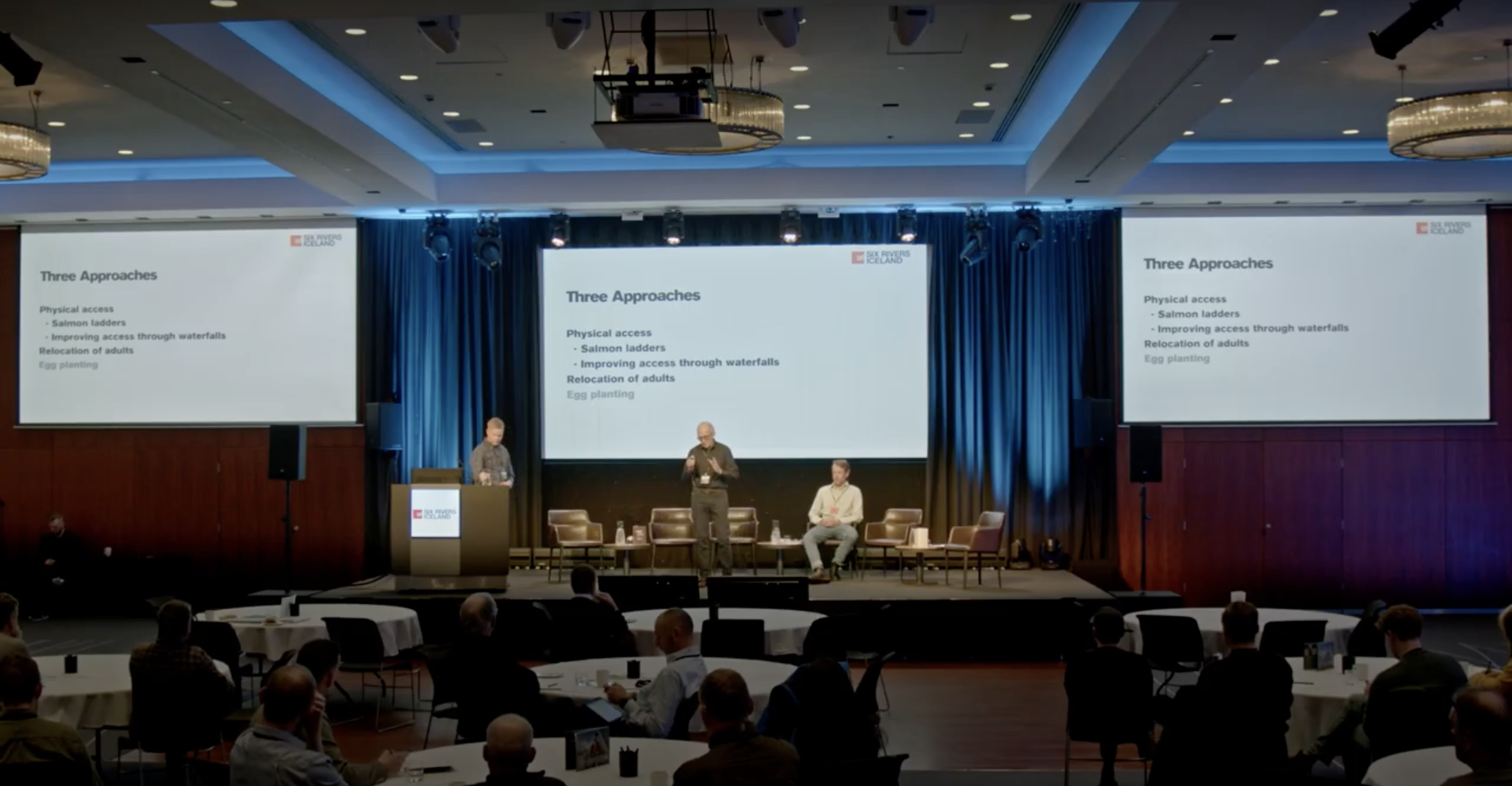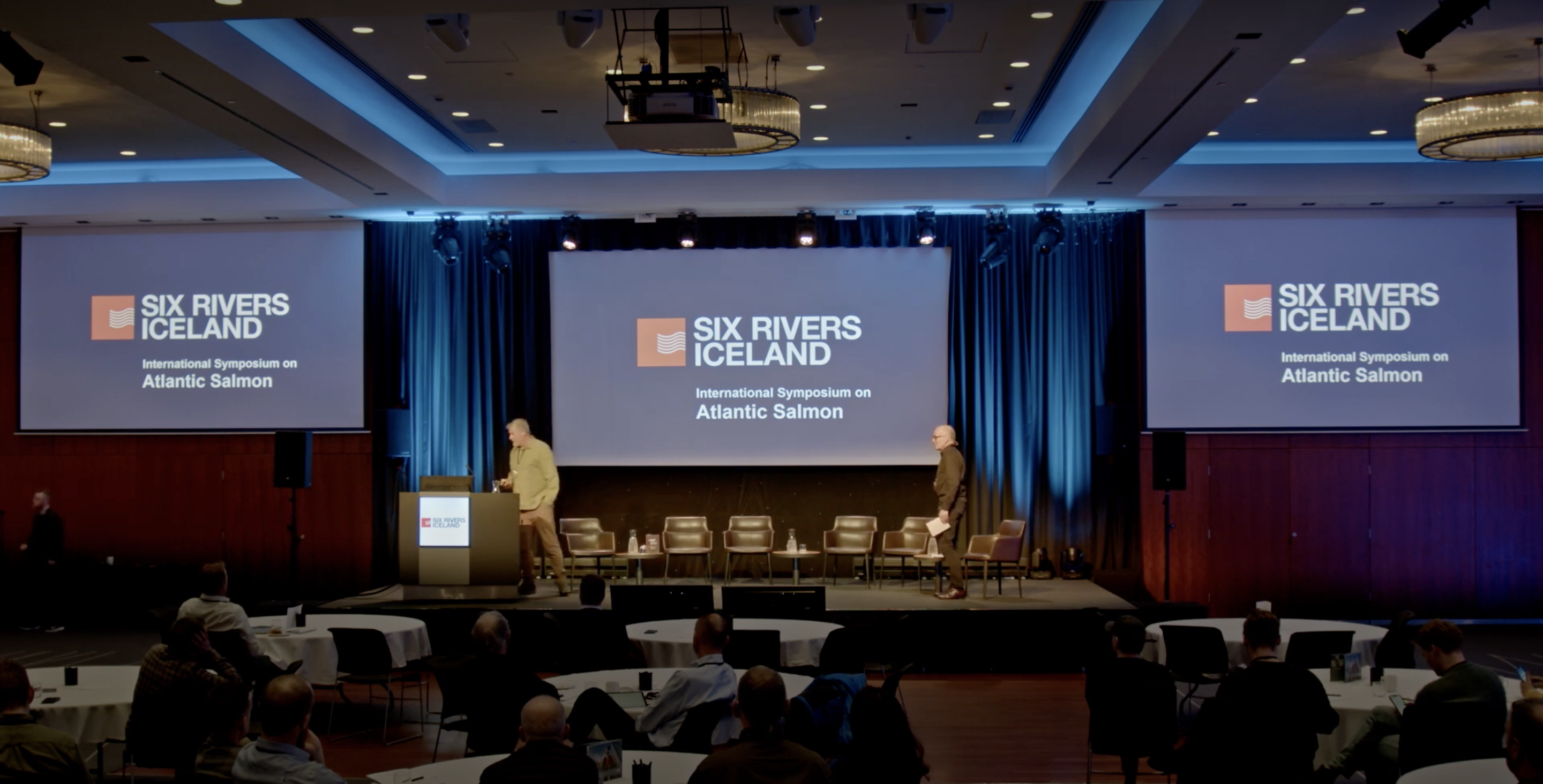Six Rivers Iceland hosted a third International Symposium on the Future of Atlantic Salmon on Tuesday 18 and Wednesday 19 April 2023.
Held in Reykjavik, experts from Iceland, Norway, Denmark, North America, United Kingdom, Ireland, and Africa discussed the decline in the North Atlantic salmon population which has fallen to one-quarter of its 1970s level.
See below for those who spoke on the day.
Lorraine is the River Director for the Dee District Salmon Fishery Board – a non-governmental statutory body – and the charitable River Dee Trust. She has worked on the River Dee for 15 years.
Her background in environmental science and a PhD in fish ecology has led to a well-established career in wild fisheries management in Scotland and she sits on the Fisheries Management Scotland Board. She is also a Chartered Environmentalist.
Colin Adams holds the Chair of Freshwater Ecology at the University of Glasgow and is currently the President of the Fisheries Society of the British Isles and he is the Director of the Scottish Centre for Ecology and the Natural Environment, an ecological field station on the shores of Loch Lomond in Scotland.
In his research he uses fish models to address fundamental and applied questions in ecology and evolution.
Jason joined ASF in 2015. He completed his MSc at the University of New Brunswick (UNB) in 2014. As the research scientist at ASF, his primary responsibilities involve project study design, organizing, analysing, and interpreting much of the telemetry data.
His most recent work focuses on using acoustic telemetry smolt detection data to couple individual-based particle tracking models within oceanographic circulation models.
Rasmus is a freshwater ecologist interested in research that betters our understanding of the structure and functioning of freshwater ecosystems. His PhD focussed on the quantification of interaction strengths within a stream food web, assessing the effects of top-down and bottom-up pressures upon these interactions. This study included all components of the food web including algae, invertebrates, fish and their respective diets. As Head of Fisheries Research at Game & Wildlife Conservation Trust, the catchment wide study of the salmon and trout populations in the River Frome in Dorset, UK has been at the centre of Rasmus’ work over the last number of years.
Among the more specific themes of this research are assessing the importance of habitat and inter- and intraspecific competition between salmonids and the impact there of on survival and life history choices. As lead partner on two large grants the group’s work on the Frome has been extended to other rivers and, in collaboration with international partners, the results from the Frome put in a wider context. The majority of this research involves the use of tagging technology (PIT, acoustic and data storage tags) enabling assessment of migration strategies and loss rates in fresh- and saltwater and factors affecting this at the level of both the individual and the population.
Hlynur is a senior scientist at the Freshwater Division of the Marine and Freshwater Research Institute (MFRI) in Iceland. After finishing his PhD in biology at the University of Iceland, 2016 he started working at the MFRI and from 2017 he has been leading the annual monitoring surveys of the salmon stocks rivers in Northeast Iceland, including five of the six rivers in the Six Rivers Project. The annual survey of the rivers in Northeast Iceland has been carried out by the MFRI for more than 40 years.
Sammi Lai is a PhD researcher based at the Marine and Freshwater Research Institute and the University of Iceland. Her PhD study is on investigating the different drivers of population dynamics of Atlantic salmon in Northeast Iceland.
Olivia is a second-year PhD student from Imperial College London, modelling population dynamics and conservation techniques in Atlantic salmon.
Geir H. Bolstad is a senior research scientist at The Norwegian Institute for Nature research (NINA).
He works on understanding the dynamics of evolution and adaptation using a broad approach with research on both animal and plant systems, theory development and meta-analyses.
His salmon research focus on the genetic effect of escaped farmed salmon on wild salmon, genetic architecture, evolution of life history and maturation reaction norms, evolution of sexual dimorphism, adaptation to changes in water flow, and eco-evolutionary dynamics connecting evolution at large-effect loci with population dynamics.
Melanie joined the Atlantic Salmon Trust in 2023 as Research Director, having recently held the position of Vice Principal Academic and Research at UHI Inverness, where she led the university’s research and education programmes at the Inverness campus.
She has a research and conservation background in long-term woodland ecology, landscape and river restoration, biodiversity management, and freshwater and wild fisheries management.
Ian is a Professor of Fish Evolutionary Ecology, whose research integrates perspectives from evolutionary ecology with fishery and conservation biology.
His areas of expertise include fish behavioural and evolutionary ecology, reproduction, life history and population biology. He has worked extensively on the management and conservation of wild fish populations including species invasions, the restoration of endangered populations, and interactions between cultured (hatchery and farmed) and wild fish.
Dr. Kurt Samways is a Research Associate at the University of New Brunswick and was appointed the first ever Parks Canada Research Chair in aquatic restoration in 2019. Dr. Samways has worked extensively in applied ecology to restore river ecosystems and recover fish populations in Canada and internationally. Dr. Samways is the lead Research Scientist of the Fundy Salmon Recovery program for endangered inner Bay of Fundy Atlantic Salmon, studying the effects of captive reared adults on fish fitness and ecosystem health. With over a decade of food web and fish-related studies, Dr. Samways will be continuing his research on a larger scale, bridging salmon recovery and ecological restoration efforts currently underway across five Atlantic national parks.
Victoria Pritchard is an evolutionary biologist who designs and applies genetic tools to understand how and why populations diverge and what this means for their management.
Currently, she is a Senior Researcher at the UHI Institute for Biodiversity and Freshwater Conservation in Scotland, where she leads work on the genomic basis of salmon migration timing and the genetic management of Scottish salmon stocks – as well as applying population genetic and eDNA approaches to guide the conservation of a much broader range of freshwater species.
Joe is a freshwater ecologist and keen angler whose PhD was focused on quantifying the ecological response of habitat restoration in UK trout rivers. Joe joined the University of East Anglia’s capacity building grant GROW Colombia, building research capacity and developing molecular tools for fish identification and detection, assisting the assessment and conservation of the country’s megadiverse freshwater fishery.
Joe now works for NatureMetrics, where he is developing projects internationally with a range of stakeholders, using eDNA tools for biodiversity assessments and monitoring.
Anders Koed is a Professor and Vice Director of DTU Aqua, the National Institute of Aquatic Resources at the Technical University of Denmark. He received his Ph.D. in Aquatic Biology from the University of Copenhagen and has dedicated over two decades to research on aquatic ecosystems.
His research interests encompass the ecology and physiology of diadromous fishes, predator/prey interactions, impact of natural and anthropogenic obstacles on fish migration and sustainable management of fish resources.
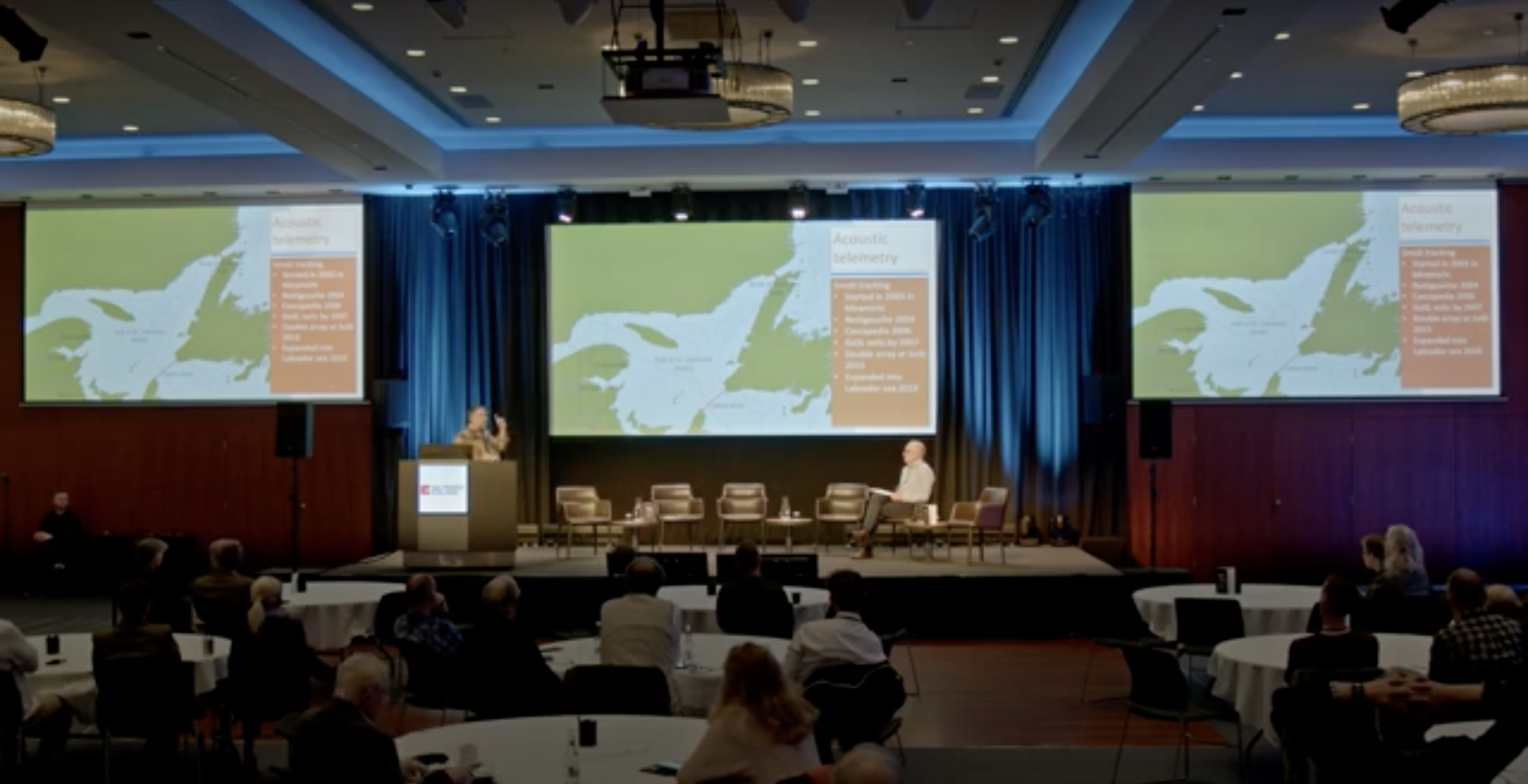
Six Rivers Iceland Atlantic Salmon Conservation - Telemetry Revealing Migration - Jason Daniels
15:47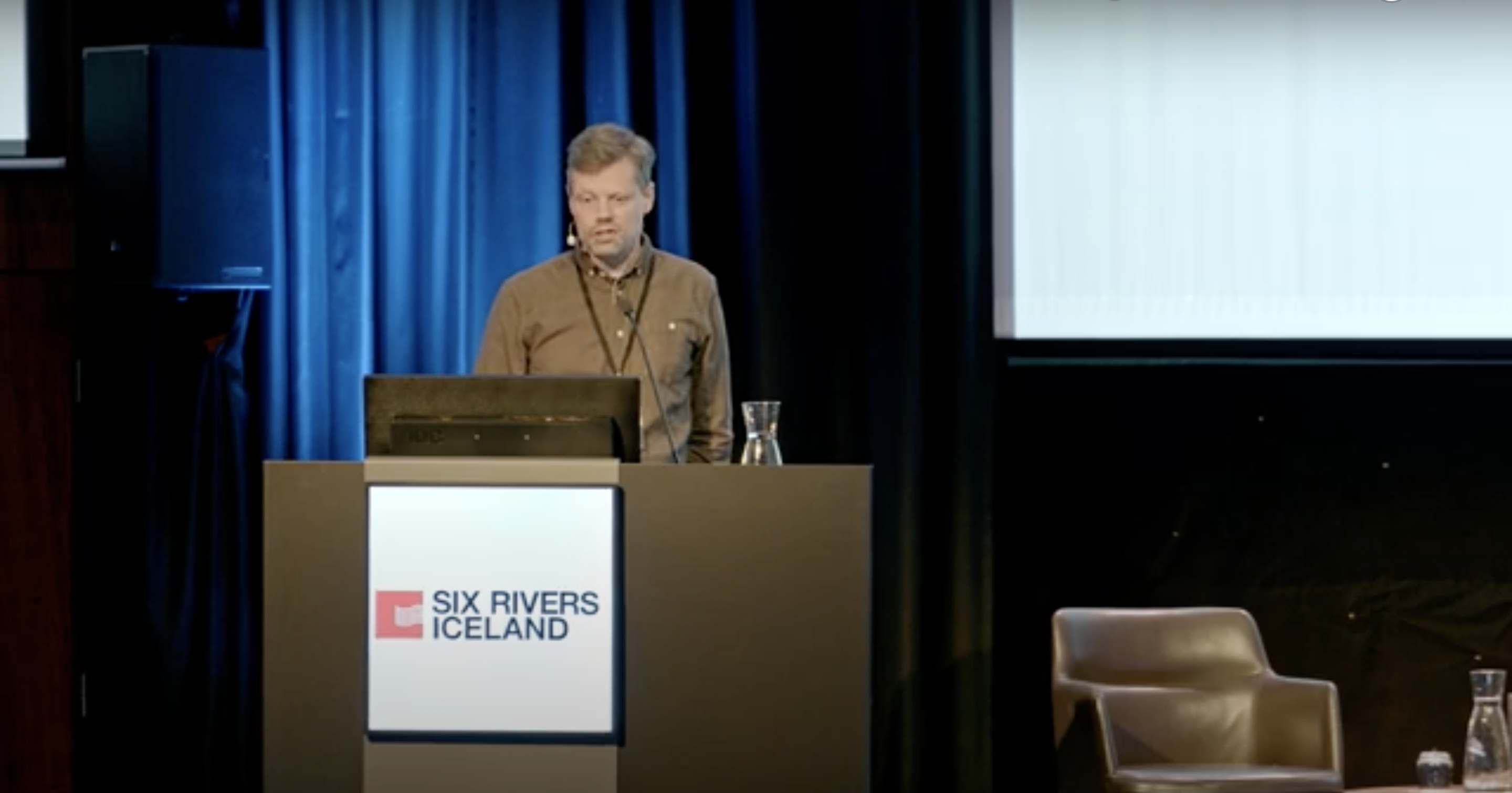
Six Rivers Iceland Atlantic Salmon Conservation - Juvenile In River Migration - Rasmus Lauridsen
18:54